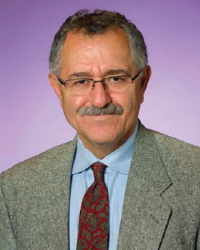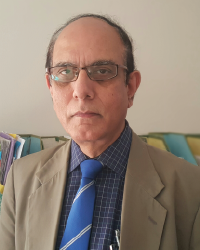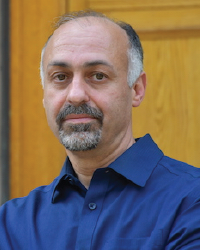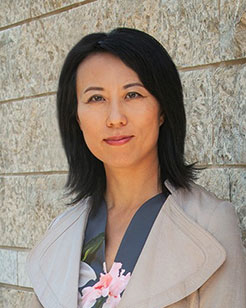Rethinking China, the Middle East and Asia in a 'Multiplex World'

Date: Thursday, May 26, 2022 | 10:00am MT
Duration: 60 minutes via ZOOM
View Recording
 The editor and chapter contributors of this volume will shed light on the complexities and the nuances of China’s multifaceted expanding ties with the regions and the opportunities and the challenges that await all sides. By providing a synthesis of theoretical observations on the nature of China’s engagement with case study of key countries and regions that are China’s partner in Belt and Road Initiative, they offer thought and insights on the rapid changes surrounding China’s global rise and the regional transformation in context.
The editor and chapter contributors of this volume will shed light on the complexities and the nuances of China’s multifaceted expanding ties with the regions and the opportunities and the challenges that await all sides. By providing a synthesis of theoretical observations on the nature of China’s engagement with case study of key countries and regions that are China’s partner in Belt and Road Initiative, they offer thought and insights on the rapid changes surrounding China’s global rise and the regional transformation in context.
This edited volume critically examines the changing dynamics of multidimensional relations between China, Middle East and North Africa (MENA) and Asia in an emerging 'multiplex world'. It challenges both extremes of 'Sinophobia' and 'Sinophilia' by studying the real 'pragmatist' China.
This book, in a foreword, introduction and thirteen chapters, problematises what MENA and Asia means to China in the age of neoliberalism, explores what are the real or perceived pillars of Sino‒MENA-Asia relations, and sheds light on how MENA can benefit from its relations with China while keeping a clear distance from the harms of neoliberal authoritarianism.
This event is co-hosted by the ECMC Chair in Islamic Studies at the University of Alberta, and the China Institute at the University of Alberta.
SPEAKERS |
|
 |
Manochehr DorrajProfessor of Political Science, Texas Christian University, USA Manochehr Dorraj is a professor of International Affairs at Texas Christian University (TCU) where he has been the recipient of several awards for his research, teaching and mentoring. He is the author, coauthor, editor or coeditor of 7 books and more than 80 refereed articles and book chapters; since 2008, he has published extensively on China-Middle East relations. Professor Dorraj is a frequent commentator on Middle East politics - his commentaries have appeared in the New York Times, the Los Angeles Times, The Economist, the Associated Press, the United Press International, the Agence France Press, the Huffington Post and the Atlantic Post, China Daily, South China Morning News, Japan Times, and O Estadaode, S. Paulo, Brazil, among others.
|
 |
Habibul KhondkerProfessor of Social Sciences at Zayed University, Abu Dhabi, UAE Habibul Haque Khondker is Professor of Social Sciences at Zayed University, UAE and co-chair of Research Committee 9 (Social Transformations and Sociology of Development, International Sociological Association). Previously, he was an Associate Professor of Sociology at the National University of Singapore. Dr. Khondker studied in University of Pittsburgh, Carleton University, Ottawa and University of Dhaka, Bangladesh. Professor Khondker's recent works include COVID-19 and Governance (Routledge, 2021) co-edited with Jan Nederveen Pieterse, and Haeran Lim, and The Emergence of Bangladesh: Interdisciplinary Perspectives (Palgrave and Macmillan, 2022) with Olav Muurlink and Asif Bin Ali. |
 |
Mojtaba MahdaviProfessor of Political Science and the ECMC Chair in Islamic Studies, University of Alberta Mojtaba Mahdavi is the ECMC Chair in Islamic Studies and Professor of Political Science at the University of Alberta. He is the author and editor of numerous works on post-Islamism, contemporary social movements and democratization in the Middle East and North Africa (MENA), post revolutionary Iran, and modern Islamic political thought. Dr. Mahdavi’s research lies at the intersection of critical Middle East Studies, Political Economy, Contemporary Islamic Studies and Decolonial/Postcolonial Studies. It is primarily driven by his interest in socio-structural changes in the life of ordinary people and discursive/intellectual transformations in the MENA/Muslim context. He is interested in supervising graduate students working on the critical study of social movements, state-society relations, religion & politics, and political economy of MENA; alternative modernities and democracies in the Muslim majority polities; critical post-colonial studies; and contemporary Islamic studies. |
COMMENTARY |
|
 |
Ashley EsareyAssociate Professor of Political Science, University of Alberta Ashley Esarey is an Associate Professor of Political Science and Director of the interdisciplinary program in Taiwan Studies at the University of Alberta. Dr. Esarey researches media and politics in China and Taiwan, environmentalism, peace and security in East Asia, and leadership politics. A recent book investigates the effects of Xi Jinping's leadership on Chinese politics and foreign relations. Dr. Esarey’s first academic position was at Middlebury College in Vermont, and he was then awarded the An Wang Postdoctoral Fellowship in Chinese Studies at Harvard University. An avid outdoorsman, Dr. Esarey was eager to return to the mountains of the west. He taught at Whitman College for three years prior to taking up his first appointment at the University of Alberta. |
MODERATOR |
|
 |
Jia WangInterim Director, China Institute, University of Alberta |